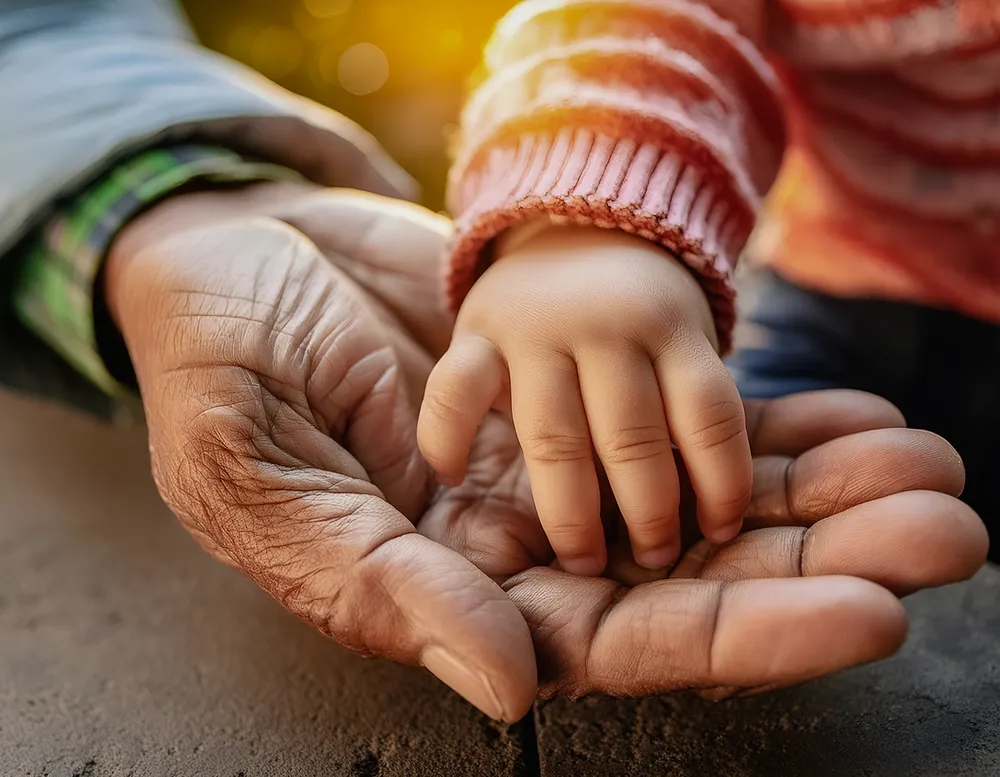New programme aims to explore how we can build a care-centred future
Of all the solutions which are put forward to deal with the UK’s societal issues, or to strengthen our communities, one that appears to have taken a backseat is care.
Yet care touches us all. Care is one of government’s biggest costs: for local government, adult social care alone cost £32bn in 2023/24 – and there are more than 5 million unpaid carers.
Beyond formal care systems – in areas such as housing, education, or justice – an ethos of care could shape the services we provide, but is often marginalised by processes or punitive cultures.
Introducing Building a Society that Cares
The Churchill Fellowship is launching a new programme which seeks to find ways in which care can be harnessed to humanise services, build resilience and connection to communities, and reimagine how we prevent and address our biggest societal challenges.
The programme will offer individuals the opportunity to take time out to learn from new ideas and practice overseas and to explore the many care-related questions that need answering.
For example, within care systems, how can we make care policies more effective? What are our long-term ambitions for care? To what extent are our care systems caring; and how do we ground such services in relationships rather than processes?
Outside the care system, what place does care have? How can we ensure care is foundational to our work in areas such as community, justice, housing, government, or education?
The Building a Society that Cares programme has been developed by Churchill Fellows and Advisory Council members Prof Carlene Firmin MBE, Yvonne Field OBE, and Dr Lindsay Graham OBE.
Carlene said: “If we are a society that really cares, we need to orientate the way we deliver services, and support and talk about people; to centre their needs and be caring in our ethos.”
Who should apply?
We are looking to attract applications from people who are based in a range of sectors, including those not normally associated with care, who want to look at issues through a caring lens. Anyone in a caring role can also apply and we are particularly interested in applications from unpaid carers. We would like to build a group of inspired and knowledgeable individuals who will use their Fellowship learning to orientate the UK’s systems and services towards care, or go on to create their own innovative projects within communities or the workplace.
For example, applications might explore grassroots projects that create a network of carers; uses of the arts to shift public narratives around care and its value in society; or ideas on redesigning how care is delivered.
Lindsay said she hoped to see applications from young carers.
“We have hundreds of thousands of young carers in this country – how can we improve the system for them? I would also like to see projects exploring how we can make the most of community assets to support care. And where statutory services have obligations to provide care, how best can we spend that public money?”
Carlene added: “I am really interested in people who work in children’s services, youth services, justice organisations – they could all benefit from reconnecting with the ethics of care that is at their value base. This is an opportunity to reclaim the purpose of that work using a lens of care – foreground relationships, contexts, and kindness in a range of UK systems.”
“In the light of the pandemic the need for a more caring approach in society has come to the fore." – Yvonne Field OBE
Inspiration for the new programme
There have been a number of studies which suggest a punitive approach to social challenges, rather than one based in care and addressing root causes, has a negative effect on our communities.
Carlene commented: “Research has highlighted how a punitive rather than a caring approach is often taken to tackling social issues. Statistics also tell us that half the population at some point have provided care, the care system is struggling, and those in caring roles are under-supported or underfunded.”
Yvonne added: “In the light of the pandemic the need for a more caring approach in society has come to the fore. There were a myriad of people coming forward and providing care, including through mutual aid groups, in ways we haven’t seen before, and this is an integral part of an approach in society that we need.”
The inspiration for the new programme has also come from our Fellowship applications, with several proposed projects being based around providing a ‘caring’ response to current challenges. We felt we should respond with a designated programme that would support a cohort of individuals to come together, share learning and collaborate across different sectors and communities in the UK.
Impact of a Churchill Fellowship
Yvonne, Carlene, and Lindsay agree their Fellowships have had a profound and lasting impact on their personal and professional lives, and the effect is ongoing.
Lindsay commented, “I am still on my Fellowship journey.” Carlene added, “It is really important to have someone believe in your ideas, to resource them and to know you have that backing.”
Building a Society that Cares has been carefully created by a working group of experts, including several Churchill Fellows, who bring first-hand experience and insight. The programme open for applications from 2 September 2025 – which we see as evolving, because of its wide remit – will initially run for three years, awarding up to 10 Fellowships each year.
Yvonne said: “I am really excited to see the applicants’ proposals, because this programme takes a different approach which I hope will provoke innovative thinking.”
To find out more about this programme and the support available take a look at the programme brief.
Disclaimer
The views and opinions expressed by any Fellow are those of the Fellow and not of the Churchill Fellowship or its partners, which have no responsibility or liability for any part of them.



